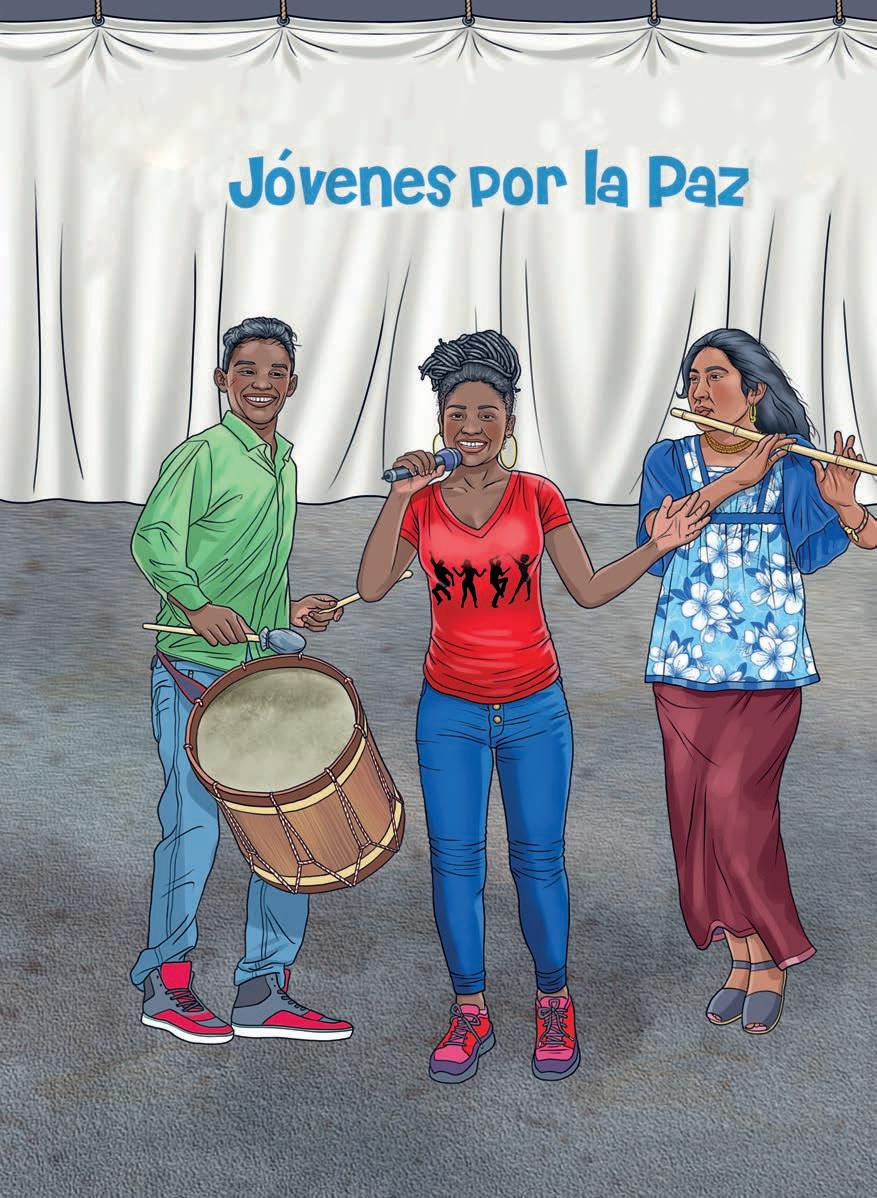Community Matters: Counterpart Guide for Grant Applicants






Local organizations, with a small injection of resources to catalyze their own, can contribute significantly to their communities’ development. The Inter-American Foundation (IAF) has been inspired by this idea since our beginnings.

IAF grants are intended to leverage, mobilize, or stimulate the commitment to change of those who have decided to join forces and resources to pursue a development initiative, even under difficult circumstances.
This is the generic term we use to identify the resources provided by grantee organizations to advance their initiatives. In some countries, these resources are also known as co-investments.
Counterpart is important because it shows that a local organization is committed to the initiative it is proposing and capable of carrying it out.
We do not require a specific percentage of counterpart to consider a grant, but all grants must have some counterpart. That’s why it is important to keep it in mind when submitting your grant application.
This guide describes the types and possible sources of counterpart. It also offers recommendations for identifying, calculating, and describing counterpart in the budget of the IAF application.
Counterpart may be: Cash. Cash that will be contributed to the initiative. Does not include barter or other types of exchange.

All goods and services contributed to the initiative, which would otherwise have to be purchased or rented. May include voluntary work and use of buildings, equipment, vehicles, and land, among others. These goods and services must be assigned a monetary value.



* Comes from the organization submitting the proposal
* Includes all cash and in-kind resources that the organization will use to carry out the initiative
* Also includes resources in the organization’s bank account, including from other donors, that will be used for the initiative and that supplement the funds requested from the IAF
* Salaries covered by other donors that are in the applicant organization’s bank account for the initiative should be included.
*
Participants are people who carry out grant activities and benefit from them. They are sometimes referred to as “beneficiaries.”
*
For a cooperative or producer organization, member contributions other than their membership fees count as “participant contributions.”
Refers to cash or in-kind contributions, such as services and technical assistance, that entities or organizations outside the community pledge to support the initiative

*
May come from the government, a company or corporate foundation, another local organization, or individual donors
*
A key characteristic of these external resources is that they are not in the applicant organization’s bank account.
When IAF staff visit a potential grantee, they verify what the applicant organization and community are actually investing in an initiative and identify resources that could [also] be included in the counterpart. The following example tells of a time when unconsidered counterpart was made visible during an IAF staff visit.


An association of eight communities in Costa Rica proposed an initiative to reforest two watersheds. In its application, the association showed counterpart that covered some administrative, transportation, and training costs. In total, its counterpart represented about 20% of the requested grant value.

The IAF funded this grant after revaluing the counterpart. When the communities were shown how to identify and value their counterpart, they were astonished to find that they had mobilized a value close to 150% of the requested grant and felt empowered to undertake new activities. As the person in charge of monitoring and evaluation for the IAF in Mexico explains: “Counterpart is important because it challenges the concept of what it means to be ‘poor.’ The ‘poor’ have a lot to offer.”
When IAF representatives visited the community, they saw that there was a nursery in the school cared for by local children. Children planted the trees and prepared the soil with their families’ support, and the local water board raised funds to buy tools and supplies. However, the grant application budget did not include any of these contributions as counterpart.
To complete the budget spreadsheet in the application, please keep in mind the following recommendations:
Present the budget in US dollars, noting the date you are making it and the exchange rate of dollars to local currency on that date.
Save your spreadsheets to remember how you calculated your counterpart amounts. You will be asked to send in this information later on if your request moves forward.

Use only the budget lines relevant to your initiative.
For each budget line you select, calculate the corresponding amount out of the total amount your organization is requesting from the IAF.
Include in the budget everything that is considered viable as counterpart. If your request moves forward in the review process, we will help you clarify any doubts about the counterpart then..
Identify at least one subline for each applicable budget line. You will find examples of sublines for each budget line in the budget spreadsheet that can be downloaded from the IAF website. Calculate the monetary values of in-kind counterpart based on the market value of products or services.
Do not include in the budget any expenses that the applicant organization will pay before signing the grant agreement with the IAF.
$
$ Amount equal to the local market price of
build a nursery, such as wood, nails, etc.
$ Amount equal to the local market price of the volunteer labor hours used to build the nursery.
equal to the
the
months that the
$ Amount equal to the fair market
used (lower
whether
by
will last.
from the organization submitting the
*
If the counterpart includes salaries of people connected with the applicant organization or other organizations, include the social or other benefits for salaried employees required by each country’s law.
* If the counterpart includes services provided by people outside of the applicant organization, calculate the value of these services based on the market price.
* Contributed Services refer to voluntary time or services that participants provide to strengthen the initiative without receiving financial compensation. This counterpart value is calculated based on the daily market price of such services.
An example: If an organization’s accountant earns $X per month plus $Y in social benefits and will devote half of his time to the initiative for Z months, this counterpart is calculated as follows: (X
0.5
* Use the rental value, not the purchase value.
* Calculate by multiplying the monthly rental value, at market price, by the number of months that the building will be used for the initiative.
* Write the total as “Rents” in a subline under “Administrative Expenses.”

* In other sublines you can calculate expenses such as furniture and supplies purchased or utilities paid.
* Use the rental value, not the purchase value.
* Calculate by multiplying the monthly rental value, at market price, by the number of months that the vehicle will be used for the initiative.
IAF grants are intended to leverage or stimulate the commitment to change of those who have joined forces and resources to advance their community plans. Make sure your budget shows that commitment.

